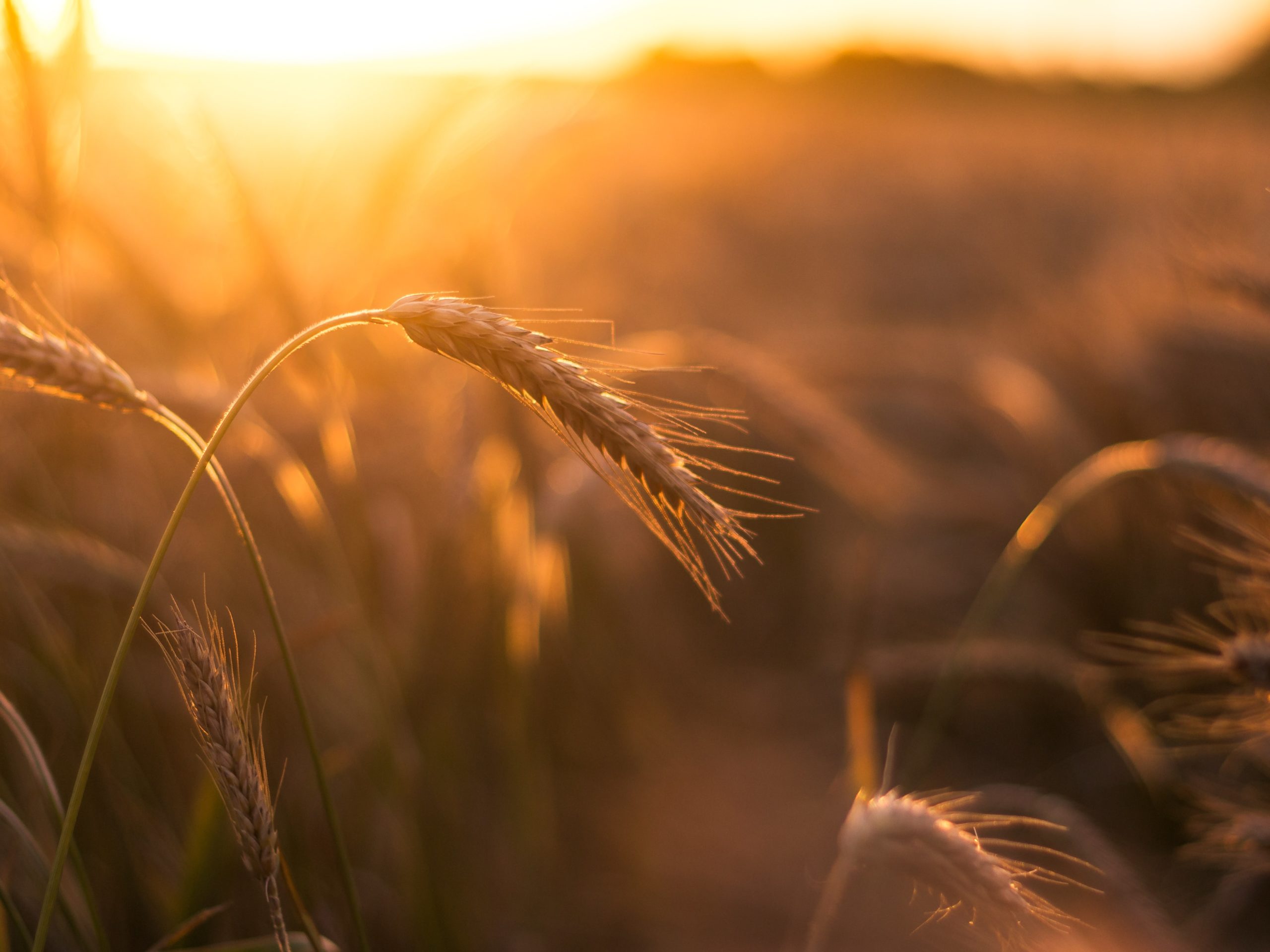Truly, truly, I say to you, unless a grain of wheat falls into the earth and dies, it remains alone; but if it dies, it bears much fruit.
John 12:24
![]()
I‘ve always appreciated John’s words of Christ, “a grain of wheat.” One grain falls to the earth, dies, and henceforth bears much fruit. This summer I’ve witnessed the massive produce resulting from a few individual seeds. One wee dill seed emerged as a fragrant wispy offering for my canned pickles. One tomato seed became a mighty green bush heavy with succulent fruit. From one small cucumber seed trailed a persistent vine, freely giving forth daily treats. Each towering okra plant has brought culinary pleasure so many of us southerners. And I can go on—the single zucchini, eggplant, the habanero and serrano, basil, and now that autumn approaches the wee mustard seed, kale and collard seeds.
It was necessary for each seed to die, but they didn’t die alone on rock ground, in the grassy pastureland surrounding my garden, or on the walkway where our chickens would surely have gobbled them up.
No, each seed was carefully planted in the soil that my husband had meticulously prepared. He used his sharp spade to break up each clod of ground, and a toothy rake to smooth the bumps, then worked in additional soil and fertilizer—the soil seemed to be groaning with its upheaval.
Each seed was then planted. His eye for detail has been unparalleled as he examined the beds, brought in the additional soil, and saturated the ground, day after day, all before planting. Mark sat daily with his plants, looking for their initial emergence breaking free from the soil.
Initially, it was exhausting watching him “hover” every morning, bringing reports of his plants, making sure each was receiving adequate water in our hot Virginia summer, and expressing concerns for every potential insect bite. His insect bites, sunburns, heat rashes and hours spent Googling symptoms seemed exhausting to me. I loved the idea of a garden, our own food, but realized I didn’t have the tender patience that he did for cultivating it, the heart of discipleship, really.
It began with that one seed—the one seed seemed so small and insignificant. He believed in the seed. Planted it. Watered it. Watched it. Pruned it. And then one day came the first signs of expected produce. Oh happy day.
It was exhilarating to see how each seed bore much fruit. We have processed, canned, frozen, and made jam all summer.
Our summer of gardening on the farm has brought the words of Christ to our attention in vivid detail. We have appreciated the agricultural, relational way Jesus engaged his fellow Jews. Their agrarian culture knew what he meant by burying the seed and allowing it to produce. They knew that certain seeds sprouted more quickly than others; other seed produced fruit slowly, while some seemed to emerge over night. They could relate to the plants that had been cultivated, nurtured, even talked to, versus the ones which landed on the path or wayside.
Their disconnect, like ours at times, was envisioning themselves as the seed which needed to be buried, die, and resurrected to bear fruit. We romanticize about the fruit each plant produces, but struggle to allow ourselves to die and be reborn. Repeatedly I return to Isaiah,
“For as the heavens are higher than the earth,
so are my ways higher than your ways
and my thoughts than your thoughts.
10 “For as the rain and the snow come down from heaven
and do not return there but water the earth,
making it bring forth and sprout,
giving seed to the sower and bread to the eater,
11 so shall my word be that goes out from my mouth;
it shall not return to me empty,
but it shall accomplish that which I purpose,
and shall succeed in the thing for which I sent it.” Isaiah 55:9-11
His ways are higher than my ways. My idea of how the Word should be cultivated, often doesn’t jive with what seems to be the purposes of God. His Word is the seed. It always produces a return, it never leaves the bush green, or void of fruit. It accomplishes that which he, the Master Gardener, purposes. We have the guarantee of heaven than when we die and are reborn, we shall be fruitful.
I have been inspired to allow the Holy Spirit to prepare the soil, plant His Word in my heart, prune and water—to submit to be cultivated. My hands want to grasp the spade, watering can, even the pruning shears, yet I have to surrender to the Master Cultivator. At the end of the day, as the sun wanes, I want His purposes to unfold, to produce fruit which remains.
![]()
The featured image is courtesy of Photo by Vlad Stawizki.
We are grateful for his fine eye and generosity!
Mary has cherished life-long literary dreams coupled with a passion for ministry, all of which lead her to study English literature and later theology and counseling in seminary. She has been designing artisan jewelry for nine years while homeschooling son Ian and daughter Julianna. After 14 years of ministry in San Diego she and her husband Mark Miller, along with their teenagers and cat, Lord Peter Wimsey relocated to Charlottesville, VA where they enjoy farm life, chickens and all. Mary enjoys off-the-wall humor, gardening, cooking, and curling up with anything penned by Dorothy Sayers, C.S. Lewis, Tolkien, or Jane Austen.
Leave a Reply
A Field Guide to Cultivating ~ Essentials to Cultivating a Whole Life, Rooted in Christ, and Flourishing in Fellowship
Enjoy our gift to you as our Welcome to Cultivating! Discover the purpose of The Cultivating Project, and how you might find a "What, you too?" experience here with this fellowship of makers!


Add a comment
0 Comments